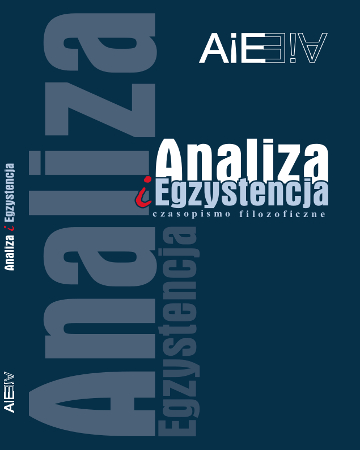
ISSN: 1734-9923
eISSN: 2300-7621
OAI
DOI: 10.18276/aie.2018.44-04





Issue archive /
44 (2018)
O typach kawy. Kontekstualizm DeRose’a jako strategia antysceptycka (On types of coffee. DeRose's contextualism as an anti-sceptical strategy)
(On Types of Coffee. DeRose's contextualism as an anti-sceptical strategy)
| Authors: |
Tomasz
Szubart

Uniwersytet Jagielloński |
| Keywords: | scepticism invariantism contextualism knowledge |
| Data publikacji całości: | 2018 |
| Page range: | 21 (61-81) |
Abstract
On types of coffee. DeRose's contextualism as an anti-sceptical strategy
Semantic contextualism is often used in order to offer solutions for problems in other branches of philosophy, including epistemology. One of such attempts is epistemic contextualism, according to which the semantic value of the word “knows” changes with the context of its utterance. The aim of this paper is to critically investigate Keith DeRose’s contextualism to see up to what extent does it provide a valid anti-sceptical strategy. I argue that while it can be seen as a good rival for global and Ungerian scepticism, it does not lead to the refutation of other variants of classical scepticism.
Download file
Article file
Bibliography
| 1. | Aikin, S.F. (2005). Who is afraid of epistemology's regress problem? Philosophical Studies, 126, 191-217. |
| 2. | Austin, J.L. (1993). Mówienie i poznawanie. Rozprawy i wykłady filozoficzne, tłum. B. Chwedeńczuk. Warszawa: WN PWN. |
| 3. | Bach, K. (2005a). „Context ex Machina”, W: Szabó, Z. (red.) Semantics vs. Pragmatics, Oxford: OUP, 15-44. |
| 4. | Bach, K. (2005b). „The Emperor's New 'Knows'”. W: Preyer, G. Peter, G. (red.) Contextualism in Philosophy. Knowledge, Meaning and Truth, Oxford: OUP, 51-90. |
| 5. | DeRose, K. (1995). Solving the Skeptical Problem, The Philosophical Review, 104(1), 1-52. |
| 6. | DeRose, K. (1999). „Contextualism: An Explanation and Defence”. W: Greco, J. Sosa, E. (red.) Epistemology. Oxford: Blackwell, 187–205. |
| 7. | DeRose, K. (2009). Case for Contextualism: Knowledge, Skepticism and Context, vol.1. Oxford: OUP. |
| 8. | Feldman, R. (1999). Contextualism and Skepticism, Philosophical Perspectives, 13, 91-114. |
| 9. | Grice, H.P. (1977). Logika i konwersacja, tłum. J. Wajszczuk, Przegląd humanistyczny, 6, 85-99. |
| 10. | Nozick, R. (1981). Philosophical Explanations. Cambridge: HUP. |
| 11. | Recanati, F. (2005). „Literalism and Contextualism: Some Varieties”. W: Preyer, G., Peter, G., Contextualism in Philosophy. Knowledge, Meaning, and Truth. Oxford: OUP, 171-196. |
| 12. | Stroud, B. (1984). The Significance of Philosophical Scepticism. Oxford: OUP. |
| 13. | Soames, S. (2002). Beyond Rigidity. Oxford: OUP. |
| 14. | Unger, P. (1980). „Skepticism and Nihilism”, Nous, 14(4), 517-545. |
| 15. | Unger, P. (2002). Ignorance: The Case For Skepticism. Oxford: OUP. |
| 16. | Wittgenstein, L. (2000). Dociekania filozoficzne, wydanie drugie. Warszawa: WN PWN. |